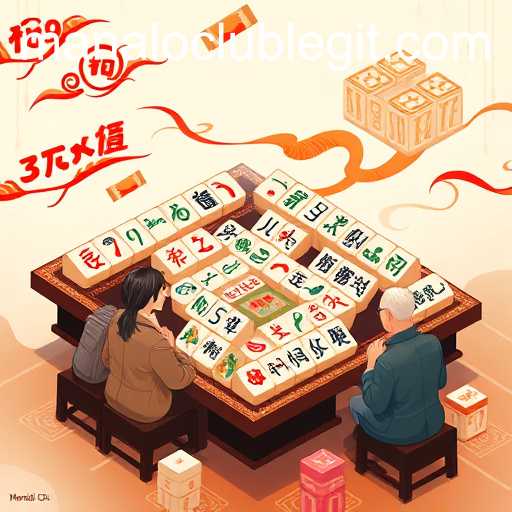The Enigmatic World of Mahjong
Mahjong is a game steeped in history and culture. Originating from China, it has transcended borders to become a global phenomenon. This tile-based game requires skill, strategy, and a little bit of luck. With its intricate rules and mesmerizing gameplay, Mahjong has captivated the hearts of millions around the world. In this article, we'll delve into the nuances of the game and how the Manalo Club plays a significant role in its contemporary resurgence.
Understanding the Basics of Mahjong
At its core, Mahjong is typically played by four players and involves a set of 144 tiles based on Chinese characters and symbols. The objective is to build a winning hand with four sets and a pair. A complete set could be a sequence of numbers within one suit or a triplet of matching tiles. Mahjong is not just a game of chance; it requires strategic thinking, making it a cherished pastime for many.
The Role of Wind and Dragons
In Mahjong, winds and dragons play a crucial role. With four winds—east, south, west, and north—and three kinds of dragons—red, green, and white—players must balance their hands by strategically using these special tiles. Playing winds and dragons can sway the game, providing tactical advantages when used judiciously.
The Allure of Mahjong Across the Globe
Since its inception, Mahjong has traveled far and wide, captivating cultures globally. From Japanese Riichi Mahjong offering a fast-paced variant to the Western versions that cater to different styles, its adaptability has led to a diversified community of enthusiasts. It is this adaptability that the Manalo Club capitalizes on, creating a rich mosaic of Mahjong cultures under one roof.
Mahjong's Cultural Resonance
Mahjong transcends its gameplay, representing a cultural bridge. In many Chinese households, it is a staple during festivals and family gatherings. The game is played with vigor and reverence, often accompanied by lively banter and camaraderie. The Manalo Club embraces this cultural ethos, offering a haven where players can enjoy the game while appreciating its rich heritage.
Manalo Club: A Cornerstone for Mahjong Enthusiasts
The Manalo Club stands as a beacon for Mahjong enthusiasts, providing a platform where players of all skill levels can congregate. It is more than just a club; it's a community where Mahjong is celebrated in all its glory. Whether you're a seasoned player or a novice eager to learn, Manalo Club offers resources, tournaments, and social gatherings to enrich the Mahjong experience.
Fostering a Vibrant Community
At the heart of the Manalo Club is its community-centric approach. By hosting regular events and tournaments, it fosters a lively atmosphere where Mahjong aficionados can test their skills, share strategies, and forge friendships. The club's inclusive nature ensures that everyone, regardless of background or experience, feels welcome.
Adapting to the Digital Age
In an era where digital connectivity reigns supreme, Mahjong has found new life in the online realm. The Manalo Club recognizes this and has expanded its offerings to include online platforms that simulate traditional Mahjong games. These digital versions retain the authenticity of the traditional game while providing accessibility to a wider audience.
The Future of Mahjong
As we look to the future, the fusion of traditional and digital elements continues to redefine how Mahjong is played and perceived. The Manalo Club is at the forefront of this evolution, ensuring the game remains relevant and engaging for future generations. With continuous innovation and a steadfast commitment to the game's core values, Mahjong's legacy is assured.
Conclusion
Mahjong, with its intricate gameplay and deep cultural roots, holds a special place in the hearts of many. Organizations like the Manalo Club exemplify the spirit of Mahjong, offering a comprehensive platform for players to explore and enjoy this timeless game. Whether played at a club or online, Mahjong's allure shows no signs of waning, continuing to capture the imagination of players worldwide.








